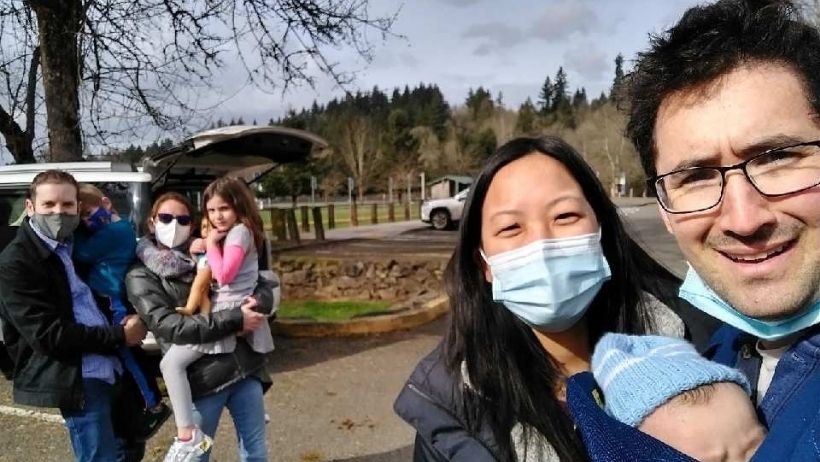I love finding family. For a bit of background, I grew up around lots of cousins on my mom’s side, including first, second, and third cousins. You could practically call it an entire family tree. We were so close that I never really distinguished between degrees of cousinhood; we were just cousins.

On my dad’s side, however, there were many cousins I never met. That’s because they were from a generation before me, since I have no first cousins on his side. This makes it all the more surprising and exciting that three times since I moved to Portland, I’ve had opportunities to connect with relatives. The first time happened when I accepted my position at Neveh Shalom. After the official announcement went out, I received an email from a cousin who lives nearby who was excited to hear I was coming “home.” (Hi, Ruby!) Then, a few years ago, I was officiating a wedding, and after the ceremony a guest came up to me and introduced herself as a cousin. She looked just like my sister, and we actually knew each other in passing when we were much younger. (Hi, Lindsey!). And most recently after our Covid-19 High Holiday services, I received an email from another cousin who just moved to Vancouver, WA and whose father actually delivered me when I was born. (Hi, Jeff!) That connection was made through watching our live streamed services. In each instance I was grateful for the moment of connection and the deep feelings of family bonds, despite reconnecting after a long time or for the very first time.
I’m not alone in this desire to be connected to family near and far. It’s actually expressed quite beautifully in this week’s Torah portion. Parshat Vayetzei begins with Jacob fleeing his home, on the run from his angry brother and the mess that has become of his family dynamic. Exhausted, he lies down and has this bizarre dream in which God comes and speaks to him. God gives Jacob marching orders, a legacy to hold and create, and a full sense of his mission in life. Much like his father Isaac, the journey is into the unknown. But unlike his grandfather, Abraham, Jacob finds family almost immediately.
Jacob sees his cousin Rachel and once he sees her, he’s so overjoyed to recognize her, he embraces her with a kiss. While I didn’t kiss any of my cousins on the first meeting, I do relate to Jacob’s joy and jubilance at finding family in a new place when he’s feeling all alone. For Jacob, seeing Rachel was finding connection to his past and knowing that there was someone who was like him. That was enough for Jacob to feel at home, to feel safe after he’d run from his brother, and to feel like God was really with him.
When I’ve examined these verses with students, they’re usually quick to ask what it means in Jacob’s dream that God “will not leave you until I have done what I have promised you.” Perhaps one of the best lessons we learn from this parshah is that feeling a sense of home, of family, is a powerful way of feeling God’s presence. As we enter the darker part of our year, may we be embraced by light and warmth and that comfort of home whenever possible.



